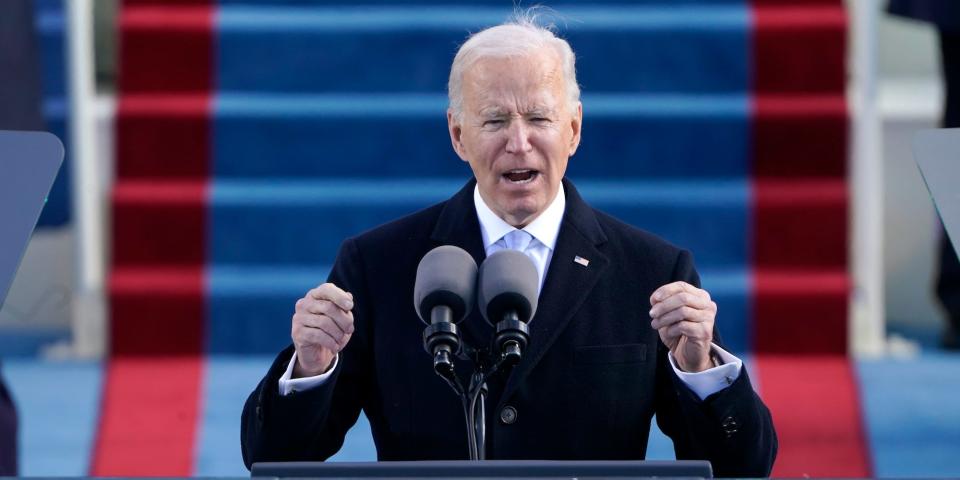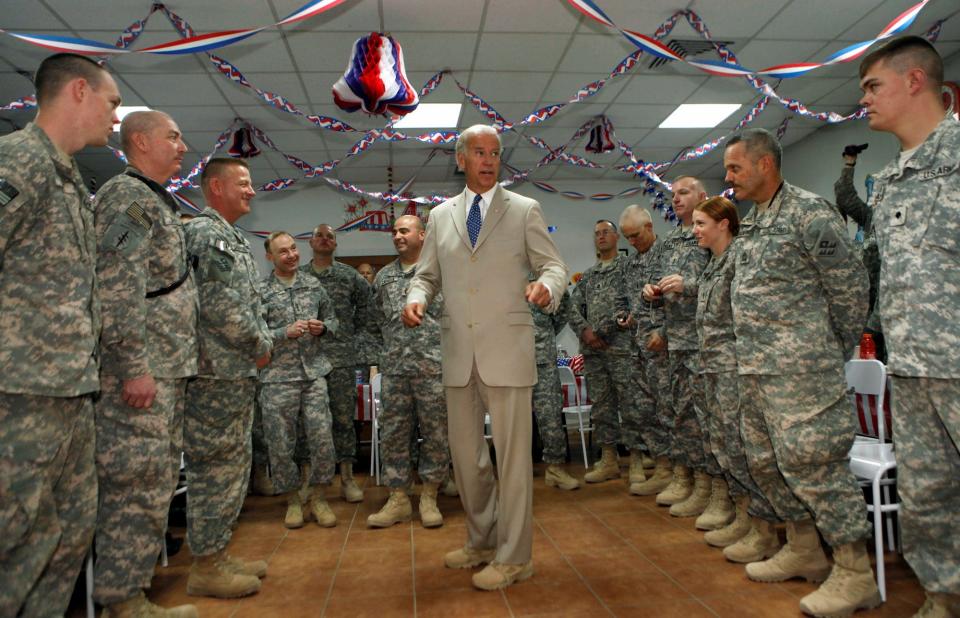Biden is on the verge of making the same dangerous mistakes as the presidents before him

President Joe Biden enters office amid simmering tensions with US foes all over the world.
The costs of pursuing US global preeminence have been made clear, and it's time for US leaders to take a different path.
Frank Giustra is co-chair of the International Crisis Group. Andrew Bacevich is president and cofounder of the Quincy Institute for Responsible Statecraft.
If the escalating tensions between the United States and China aren't causing you concern yet, you've not been paying attention.
Any conflict between the two superpowers would result in unimaginable devastation - if not physical, at least economic. And don't forget: both China and the United States possess nuclear arsenals.
There's a lot going on right now in our Covid-besieged world. But war remains an omnipresent danger. Antagonism between the United States and China is only one source of concern. The broken relationship between the US and Iran is another.
A year ago our two countries came dangerously close to full-scale war. After Tehran-backed forces launched several missiles at a military base in Iraq housing US troops, Washington retaliated by assassinating Iranian Maj. Gen. Qasem Soleimani near the Baghdad airport. Iran responded by firing missiles at Iraqi air bases housing US forces.
Thankfully, cooler heads prevailed, and both sides walked back from the brink. But tensions between the US and Iran remain high. Next time, we might not be so lucky.

The bad blood between Tehran and Washington derives from many sources. Yet one proximate cause stems from the Trump administration's unilateral decision to exit the Joint Comprehensive Plan of Action, the so-called Iran nuclear deal, as a part of a crude "maximum pressure" campaign.
That campaign failed abysmally, and in a hopeful sign, the Biden administration has now signalled its interest in rejoining the JCPOA. The journey from aspiration to achievement is likely to be arduous. But the effort is a necessary one.
Sadly, the Trump administration's reliance on coercion in dealing with Tehran falls within a tradition of American statecraft which long predates Trump himself. Since World War II and especially since the end of the Cold War, a succession of administrations, Democratic and Republican alike, have opted for force, overt and covert, direct or through proxies, to shore up US global preeminence.

 Yahoo Autos
Yahoo Autos 